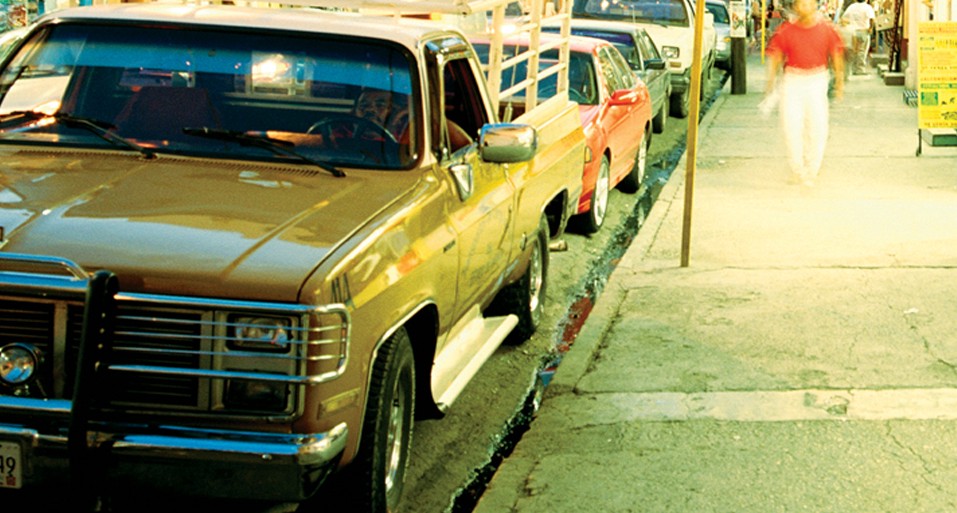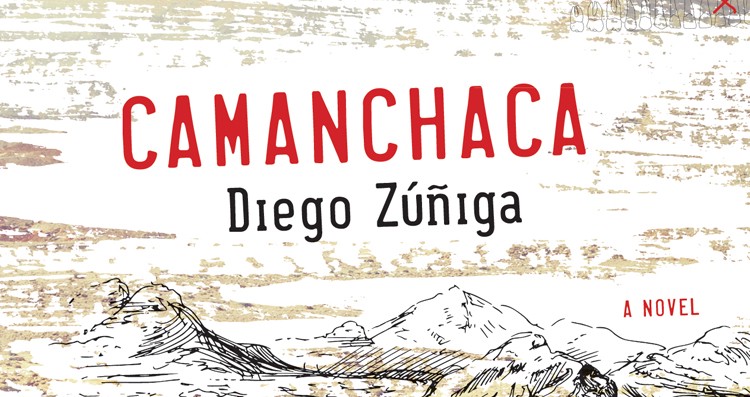Books & Culture
REVIEW: Sidewalks by Valeria Luiselli
R

“Searching for a grave is, to some extent, like arranging to meet a stranger in a café…every person could be the one waiting for us; every grave, the one we are searching for.” This introductory salvo from Valeria Luiselli pulls us immediately into the quest anchoring the opening essay of Sidewalks — the search for the grave of the poet Joseph Brodsky in the cemetery of San Michele in Venice. Luiselli’s mission perfectly encapsulates the seeking of the essayist: the haphazard march towards the beacon end-point in the hope of finding some digressive sparks along the way.
These essays are steeped in graveyard melancholy — dried-dead Mexican waterways, dead Russian poets in Venetian cemeteries, detours into nostalgia, the particular strain of suffering encapsulated in the “saudade” of Pessoa’s Book of Disquiet, and the forgotten empty lots, the “relingos”, of Mexico City. Even the living masses of Manhattan comprise a tableau of solitude — doormen as the last bastions of computer-free existence, her isolated neighbors in their solitary apartment pods, glowing computer screens like digital gravestones. Luiselli excavates history — the personal, and the public — melding melancholic requiems with an intense immersion in her present moment. The resulting book is a dizzying and pleasurable experience.
Sidewalks is the type of book that makes me long for Spanish fluency (as my unopened Rosetta Stone box mocks me from by bookshelf). As Luiselli digresses into the untranslatable Portugese “saudade,” I wonder what native beauty I am missing in the translation of Luiselli’s work into English. This collection was first published as “Papeles Falsos” (False Papers) and it is easy to envision the editorial combat while hashing out the new, more audience-friendly English appellation. This new title is a great example of the power of a word — the robust, judgmental “False Papers” replaced by the bland, pedestrian “Sidewalks.” We see a similar exchange in the closing essay, Permanent Residence. Luiselli notes that Brodsky’s ode to his adopted Venice, “Street of the Incurables,” became “Watermark” in the English version. This translation travesty also perhaps driven by the English (and English-speaking) obsession with tamping down that Latin vigor.
“Alternative Routes,” at twelve pages, is the longest offering, and the fulcrum of the collection’s unifying melancholy. Luiselli’s digression into the search for a direct translation for the Portugese “saudade” becomes a dive into nostalgia and melancholy — two items steeped in the pages of her essays. She notes that nostalgia isn’t solely a pining for the past and that “there are things that produce nostalgia in advance.” This is something we instinctually feel when we encounter those perfect moments Luiselli describes as “places in which we know ourselves to be happier than we will ever be afterwards.” This is my favorite passage of the entire collection — one that cuts through the clutter of modernity to hit upon one of those great felt truths of life.
In “Return Ticket,” Luiselli lingers over unpacked boxes of books and ponders our seemingly innate human urge to find and create order from the chaos. She searches for meaning in old annotations and marginalia, finds scraps of mementos tucked in the pages of long-ago read tomes. She discovers a portrait of Duras in the pages of a notebook, before returning to her teenage visage in an old photo. “A face encloses its future faces. In my young face I instinctively read a first wrinkle of doubt, a first smile of indifference: lines of a story I’ll rewrite and understand on a future rereading.” This concluding flourish isanother key moment where Luiselli makes the personal universal. Her sharp clairvoyance conjured up an image of myself at thirteen, and a similar first fracture of doubt evident in my forced school-photo smile. As with many of these essays, Luiselli’s lyric meanderings belie a powerful conclusion, as she rope-a-dopes us into letting our guard down before connecting with an emotive uppercut.
The essay is the writer’s brain at work on the page, and Luiselli’s is an undeniably brilliant mind in motion, alternately playful and melancholic, always seeking hidden meanings in her triumvirate of significant cities. Venice, Mexico City, New York — Luiselli drops us into these locales with minimal context. But she resists the temptation to smother the reader with a preponderance of connective backstory. These gaps in the map — these undeveloped “relingos” — are just as important an aesthetic decision as what to include, and Luiselli’s ethereal minimalism deserves much praise.
In the final essay, “Permanent Residence,” Luiselli ends as she began, in the San Michele cemetery. A final dive into the lagoon of melancholy, nostalgia and mystery, stalking history amongst the gravestones, seeking answers from the silent dead. “I’ve never arrived at any truly interesting conclusion about myself,” Luiselli writes, and whether we believe this stated modesty, it is obvious that she is an essayist with a prodigious talent for drawing conclusions about her world. But conclusions and resolutions are not the primary lure of this collection — it is Luiselli’s beautiful, digressive speculations that entice us to follow her through these pages. And Brodsky’s Venice is the most fitting beacon for her essayistic round-trip — a mesmerizing dreamscape, a tangle of questions and contradictions, a shimmering mystery just tantalizingly out of reach.

by Valeria Luiselli










